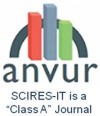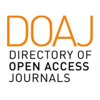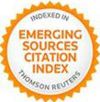Editorial. Digital Cultural Heritage, arts reproduction and Museums systems. Languages and techniques in a Covid and post-Covid scenario for new forms of heritage against the silence of a fragile culture 
Abstract
The pandemic and post-pandemic scenario makes it urgent to reflect on potentials of digital transition for Cultural Heritage in order to boost critical awareness and to democratise art supporting the heritage communities and the common goods. Nowadays, digital facsimiles can be considered as heritage itself, including the so called born digital heritage, whose processes, methods and evolution over time, have to be preserved and reused as a potential source of knowledge for future generations. This issue collects positions in favor of a scientifically based 'digital culture' and to bring together best practices in the definition of digital transformation strategies for museum and cultural heritage. It also reports some theoretical-methodological reflections as well as success cases applications in the field of DCH, assessing the scientific reliability, technical feasibility and economic sustainability of outstanding experiences.
Keywords
Full Text:
PDFDOI: http://dx.doi.org/10.2423/i22394303v11n1p1
References
Clini, P., & Quattrini, R. (2020). Umanesimo Digitale e Bene Comune? Linee guida e riflessioni per una salvezza possibile / Digital humanities and Commons: guidelines and recflections for a possible salvation. Il Capitale Culturale, supp 11, 157–175. https://doi.org/http://dx.doi.org/10.13138/2039-2362/2529
Corr, S., Marçal, E., & Roche, N. (2019). Fostering innovation in heritage professions: the effect of the EYCH. SCIRES-IT - SCIentific RESearch and Information Technology, 9(1), 49–60. https://doi.org/10.2423/I22394303V9N1P49
DG Connect - Interactive Technologies Digital for Culture & Education Group 2. (2020). Factual Summary Report on the open public consultation on digital for Cultural Heritage. Retrieved from https://ec.europa.eu/info/law/better-regulation/have-your-say/initiatives/11837-Evaluation-of-the-Recommendation-on-digitisation-and-online-accessibility-of-cultural-material-and-digital-preservation/public-consultation_it
DiCultHer - Scuola a Rete per la Formazione nel Digital Cultural Heritage Arts and Humanities. (2019). Charter of Pietrelcina on Digital Cultural heritage education. Retrieved from https://www.diculther.it/blog/2020/01/01/carta-di-pietrelcina-sulleducazione-alleredita-culturale-digitale/
LEEUWARDEN DECLARATION - Adaptive re-use of the built heritage: preserving and enhancing the values of our built heritage for future generations, 1 (2018). Retrieved from https://www.ace-cae.eu/fileadmin/New_Upload/_15_EU_Project/Creative_Europe/Conference_Built_Heritage/LEEUWARDEN_STATEMENT_FINAL_EN-NEW.pdf
European Commission. (2011). COMMISSION RECOMMENDATION of 27 October 2011 on the digitisation and online accessibility of cultural material and digital preservation. In Comunidades Europeas (Issue 7, pp. 28–30). Retrieved from https://eur-lex.europa.eu/legal-content/EN/TXT/?uri=CELEX%3A32011H0711
European Commission. (2018). A New European Agenda for Culture. Retrieved from https://eur-lex.europa.eu/legal-content/EN/TXT/PDF/?uri=CELEX:52018DC0267&from=EN
Lykourentzou, I., & Antoniou, A. (2019). Digital Innovation for Cultural Heritage: Lessons from the European Year of Cultural Heritage. SCIRES-IT - SCIentific RESearch and Information Technology, 9(1), 91–98. https://doi.org/10.2423/I22394303V9N1P91
Valéry, P. (1928). La conquête de l’ubiquité. In Oeuvres, tome II, Pièces sur l’art, (pp. 1283-1287) Paris: Gallimard, 1960. Retrieved from http://classiques.uqac.ca/classiques/Valery_paul/conquete_ubiguite/
Article Metrics
Metrics powered by PLOS ALM
Refbacks
- There are currently no refbacks.
Copyright (c) 2021 Paolo Clini, Ramona Quattrini

This work is licensed under a Creative Commons Attribution-NonCommercial-NoDerivatives 4.0 International License.
SCIRES-IT, e-ISSN 2239-4303
Journal founded by Virginia Valzano





